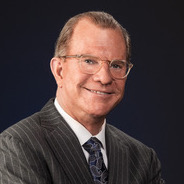4 minutes
Can you meet a member one-on-one and knowingly declare that your credit union is healthy across key organizational performance domains?
As a credit union board member, you may have run into a member on the street and he wants to bend your ear about something like the following: “Is my account and personal information protected from being hacked?” “I hear there is a disgruntled staff person at the Morgan Street branch.” “I hear we have a lot of bad small business loans.” “Must be pretty nice to travel all over to the resort spots for conferences.” “I hear we may be buying a community bank; how does that fit the credit union philosophy?”
All of these are real questions board members have been asked recently. They help signal our important board responsibility to stay fully informed, not only on financial soundness, but also the broad spectrum of what’s going on with our credit union.
I have a single objective at every board meeting I attend: gaining informed confidence. When the meeting is over, I want to be able to face a constituent one-on-one and declare that we are healthy across all organizational performance domains: financial, risk management, ethics, organizational culture, member value and satisfaction, community respect for the brand, and board of directors’ competence. The implication of my governance objective is that a board member will consistently examine the evidence relevant to each of these domains.
In general, many of our boards are negligent at informed confidence. We typically rely on anecdotes, a once-a-year member survey, and confidence in our CEO to assure us that the culture is what we want, the brand is strong, and risk beyond financial risks are being identified and addressed.
Many times CU boards are made up of individuals who may be popular but have no board experience. Others may have business experience but have not been exposed to the recent governance literature. Many board members have served on community-based boards and believe that model is good experience for their CU service, but many times it is not. All credit unions are at risk of putting more emphasis on financial strength than overall organizational strength. They must all be balanced.
Today’s CU has reached a status, and some of the larger ones a critical mass, where the benchmark should be a corporate governance model, not a community-based governance model. In a corporate governance model, board members stay out of the day-to-day operations, keep their eye on the broad spectrum of organizational performance, refresh the board regularly, and understand they are there to ask tough questions, not to be the CEO’s buddy.
How can directors understand full fiduciary corporate governance responsibilities of the kind that generates informed confidence beyond relying on a manager? They become educated, engage in self-assessment and examination, and design meetings with dashboards across all the organizational performance domains above. They recruit new board members who have corporate experience, are used to big risk and a business-like governance model, and seek first to serve and then to relinquish their seat to a fresh perspective.
If your board has paid attention to recruiting business-savvy board members, you are well on your way because they understand the broad spectrum of governance oversight needed in today’s environment. If your board gets a “balanced scorecard” across performance on areas beyond finance, you are at a greater advantage of having members with informed confidence you want. If you have kept up with the governance literature and track “risks” beyond assets and liabilities, set term limits to ensure fresh eyes for the enterprise on a regular basis, have a board that commits to governance education year round whether at on site at a conference or through reading the literature, you are building a solid base to assure informed confidence.
I have served on five boards and worked with more than 300 others. On my own boards, I ask the broad organizational questions that assure me I understand how we are being led by the CEO as well as that we are performing at a satisfactory level. I also ask my board associates to think strategically about how we might need to evolve to keep up with changing business conditions.
In my board education seminars for CUES, I ensure participants get a glimpse of the most contemporary thinking on organizational performance and the role of the board of directors.
That next member question may come when you least expect it and be about an issue you did not expect. Informed confidence begins with knowing what your role is as a board member, asking the tough questions to confirm satisfactory performance of the credit union, and staying abreast of developments in governance that drive high performing organizations. cues icon
Regular CUES columnist and seminar leader, Les Wallace, Ph.D., is president of Signature Resources, Aurora, Colorado, and author of Principles of 21st Century Governance. He is a governance consultant to boards in the credit union, community banking, healthcare, professional association, manufacturing and governmental arenas.






